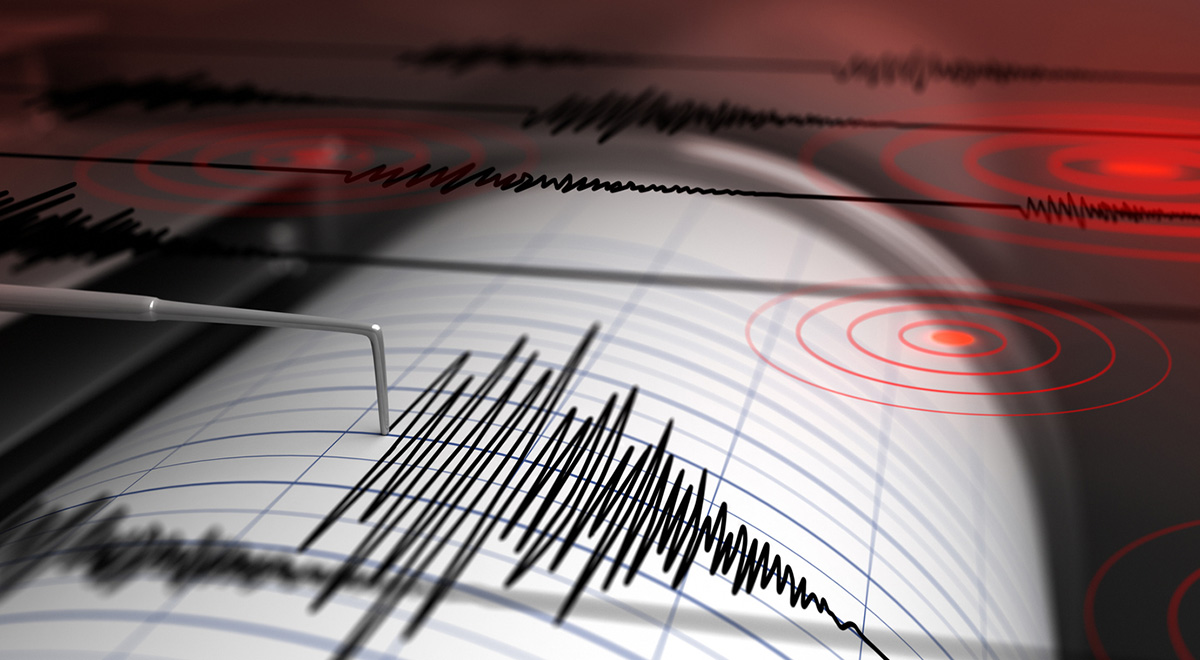

Finance
How Much Is Earthquake Insurance Los Angeles
Published: November 28, 2023
Protect yourself and your finances from potential earthquake damage in Los Angeles with earthquake insurance. Find out how much coverage you need and get a quote now.
(Many of the links in this article redirect to a specific reviewed product. Your purchase of these products through affiliate links helps to generate commission for LiveWell, at no extra cost. Learn more)
Table of Contents
- Introduction
- Understanding Earthquake Insurance
- Benefits of Earthquake Insurance
- Factors Affecting Earthquake Insurance Rates
- Earthquake Insurance Coverage in Los Angeles
- How to Obtain Earthquake Insurance in Los Angeles
- Choosing the Right Earthquake Insurance Policy
- Factors to Consider When Selecting Earthquake Insurance Coverage
- Potential Risks and Coverage Limits in Los Angeles
- Claims Process for Earthquake Insurance in Los Angeles
- Tips for Mitigating Earthquake Damage
- Conclusion
Introduction
Welcome to the bustling city of Los Angeles, known for its sunny weather, glamorous lifestyle, and unfortunately, the occasional earthquake. Living in an earthquake-prone region comes with its fair share of risks, but luckily, there are measures you can take to protect yourself and your property. One such measure is earthquake insurance.
Earthquake insurance provides financial coverage in the event of property damage and loss caused by earthquakes. While standard homeowners insurance policies typically do not cover earthquake damage, earthquake insurance is specifically designed to protect against these natural disasters.
Understanding the importance of earthquake insurance and how it works is crucial for homeowners in Los Angeles and other earthquake-prone areas. This comprehensive guide will explain the ins and outs of earthquake insurance, including the benefits, factors that influence rates, coverage options in Los Angeles, and the claims process.
While earthquake insurance is not mandatory in Los Angeles, it is strongly advised due to the high seismic activity in the region. With the ever-present threat of a major earthquake, having earthquake insurance can provide a sense of security and peace of mind.
Whether you are a long-time resident or considering a move to Los Angeles, this guide will provide you with the information you need to make an informed decision about earthquake insurance. Let’s delve into the details of earthquake insurance, its benefits, and the steps you can take to safeguard your home and finances.
Understanding Earthquake Insurance
Earthquake insurance is a specialized type of insurance that provides coverage for property damage and loss caused by earthquakes. It protects homeowners from the financial burden that can arise from repairing or rebuilding their homes after an earthquake.
Unlike standard homeowners insurance, which typically covers damage from fire, theft, and certain natural disasters, earthquake insurance specifically covers seismic events. This includes ground shaking, ground rupture, landslides, and other earthquake-related perils.
It is important to note that earthquake insurance is separate from homeowners insurance and is often purchased as an additional coverage. While it is not mandatory in areas prone to earthquakes, such as Los Angeles, it is highly recommended due to the significant risks involved.
Earthquake insurance policies typically cover both structural damage to the property and personal property within the home. Structural damage refers to the physical damage to the home’s foundation, walls, roof, and other components. Personal property coverage includes damage or loss of furniture, electronics, appliances, and other belongings.
It is essential to review the specifics of the policy to understand the extent of coverage and any exclusions or limitations. Some policies may have a deductible, which is the amount the policyholder must pay out of pocket before the insurance kicks in.
It’s important to understand that earthquake insurance does not cover certain perils that may be associated with earthquakes. These could include floods, tsunamis, or landslides caused by something other than an earthquake. It’s crucial to evaluate your needs and consider additional policies or endorsements to cover these perils if necessary.
While earthquake insurance can provide financial protection, it is necessary to carefully assess the risks and benefits before purchasing a policy. Factors such as the likelihood of earthquakes in your area, the age and condition of your home, and the potential cost of repairs should be taken into account.
Now that we’ve covered the basics of earthquake insurance, let’s explore the numerous benefits it offers to homeowners in Los Angeles and other earthquake-prone regions.
Benefits of Earthquake Insurance
Earthquakes can cause significant damage to your home and belongings, resulting in extensive repair and replacement costs. Having earthquake insurance offers several key benefits that can help mitigate these financial burdens:
- Financial Protection: The primary benefit of earthquake insurance is financial protection. In the aftermath of an earthquake, the insurance coverage can help cover the costs of repairing or rebuilding your home, as well as replacing damaged belongings. This can provide peace of mind and alleviate the financial strain of a major earthquake event.
- Structural Coverage: Earthquake insurance typically includes coverage for structural damage to your home. This encompasses repairs to the foundation, walls, roof, and other structural components. Having this coverage ensures that you have the financial means to restore your home’s integrity and safety.
- Personal Property Coverage: Earthquake insurance also covers the damage or loss of personal belongings within your home. Furniture, electronics, appliances, and other valuables can be protected under your policy. This provides reassurance that you can replace essential items that may be damaged during an earthquake.
- Temporary Living Expenses: In the event that your home becomes uninhabitable due to earthquake damage, many earthquake insurance policies provide coverage for temporary living expenses. This can include hotel accommodations, food, and other necessities while your home is being repaired or rebuilt.
- Customizable Coverage: Earthquake insurance policies often offer flexibility in terms of coverage limits and deductibles. This allows homeowners to tailor their policies to best suit their needs and budget. By choosing the appropriate coverage amounts, you can ensure that you are adequately protected without overpaying for unnecessary coverage.
- Peace of Mind: Perhaps one of the most significant benefits of earthquake insurance is the peace of mind it brings. Living in an earthquake-prone region can be stressful, but knowing that you have insurance coverage in place can provide a sense of security and help you sleep better at night.
It is important to remember that earthquake insurance benefits vary depending on the specific policy and insurance provider. To fully understand the extent of coverage and any limitations, it is crucial to review your policy carefully and consult with your insurance agent or company.
Now that we have explored the benefits of earthquake insurance, let’s discuss the factors that can affect earthquake insurance rates in Los Angeles.
Factors Affecting Earthquake Insurance Rates
When determining earthquake insurance rates, insurance providers take various factors into consideration. Understanding these factors can help homeowners in Los Angeles understand why their premiums may vary. Here are some of the key factors that can influence earthquake insurance rates:
- Location: The location of your home is a significant factor in determining earthquake insurance rates. Areas with a higher risk of earthquakes, such as Los Angeles, will generally have higher premiums. Insurance companies assess the level of seismic activity in the region as well as the historical data on earthquake occurrences.
- Property Value and Construction: The value of your property and the construction materials used can impact insurance rates. Higher-valued properties and homes built with materials that may be more susceptible to earthquake damage could result in higher premiums.
- Deductible: The deductible is the amount the policyholder must pay out of pocket before the insurance coverage kicks in. Higher deductibles can lead to lower premiums, while lower deductibles may result in higher premiums.
- Age of the Home: Older homes may be more vulnerable to earthquake damage, especially if they were built before modern building codes and seismic retrofitting techniques were established. Consequently, older homes may have higher insurance rates compared to newer, more earthquake-resistant structures.
- Claims History: If you have previously filed earthquake insurance claims, this could impact your future rates. Insurance companies assess the risk based on the history of claims in an area and individual policyholders’ claims. Homeowners with a history of claims may experience higher premiums.
- Insurance Provider: Different insurance companies have their own methodologies for underwriting earthquake insurance policies. Rates can vary significantly between providers, so it is recommended to obtain quotes from multiple insurance companies and compare coverage and premiums.
It’s important to note that earthquake insurance rates are not solely based on the value of a property. While factors such as property value and construction type are taken into consideration, risk assessment and historical data play a crucial role in determining premiums.
While earthquake insurance rates can vary, it is crucial to prioritize proper coverage over solely focusing on price. Consider the level of protection provided, the deductible, and the reputation of the insurance company when selecting a policy. Working with a knowledgeable insurance agent can help you navigate through the various options and find the best coverage for your needs and budget.
Now, let’s dive into earthquake insurance coverage options specifically tailored for Los Angeles homeowners.
Earthquake Insurance Coverage in Los Angeles
Living in Los Angeles, one of the most earthquake-prone regions in the United States, makes earthquake insurance a vital consideration for homeowners. Understanding the specific coverage options available in Los Angeles can help you make informed decisions about your insurance needs. Here are the key aspects of earthquake insurance coverage in Los Angeles:
Structural Coverage: Earthquake insurance typically provides coverage for structural damage to your home. This includes repairs to the foundation, walls, roof, and other structural components. Policies may also cover additional structures on your property, such as garages or sheds.
Personal Property Coverage: In Los Angeles, earthquake insurance policies often include coverage for personal belongings within your home. This can encompass furniture, electronics, appliances, and other valuables. It is important to review the coverage limits to ensure you have adequate protection for your possessions.
Loss of Use Coverage: If your home becomes uninhabitable due to earthquake damage, earthquake insurance can provide coverage for additional living expenses. This includes the cost of temporary housing, meals, and other necessary expenses while your home is being repaired or rebuilt.
Code Upgrade Coverage: Following an earthquake, building codes and regulations may change. Earthquake insurance policies in Los Angeles often include coverage for necessary code upgrades. This ensures that the repairs or rebuilding of your home meet the most current building standards.
Loss Assessment Coverage: In some cases, earthquakes can cause damage to shared or common areas in condominiums or homeowner association (HOA) properties. Loss assessment coverage, available as an add-on to your policy, can help protect you against potential assessments for damage to shared areas.
Masonry and Chimney Coverage: Los Angeles is home to many houses with masonry construction and chimneys. Earthquake insurance policies may provide specific coverage for masonry damage and chimney repairs caused by earthquakes.
It is important to carefully review and understand the terms and conditions of your earthquake insurance policy to ensure that it aligns with your specific needs and covers the potential risks you may face in Los Angeles. Consider working with an experienced insurance agent who can help guide you through the coverage options and limitations.
Now that we have explored earthquake insurance coverage in Los Angeles, let’s discuss the process of obtaining earthquake insurance for your home.
How to Obtain Earthquake Insurance in Los Angeles
If you’re a homeowner in Los Angeles, obtaining earthquake insurance to protect your property and belongings is a wise decision. Here is a step-by-step guide on how to obtain earthquake insurance:
1. Assess Your Risk: Before seeking earthquake insurance, evaluate the seismic activity in your area and understand the potential risks you may face. Living in Los Angeles, the likelihood of earthquakes is relatively high. Understanding your risk level will help you determine the coverage limits you need.
2. Contact Insurance Providers: Reach out to insurance companies that offer earthquake insurance in your area. It’s recommended to contact multiple providers to compare coverage options, rates, and deductibles. Insurance companies experienced in insuring properties in earthquake-prone regions, such as Los Angeles, may offer specialized policies tailored to your needs.
3. Get Quotes: Provide the necessary information about your property to the insurance companies to obtain quotes for earthquake insurance coverage. The information needed may include the age of your home, construction materials, square footage, and other relevant details. Compare the quotes to ensure you are getting the best combination of coverage and price.
4. Understand Policy Coverage: Carefully review the earthquake insurance policies offered by different providers. Familiarize yourself with the specific coverage, limitations, deductibles, and exclusions. Ensure the policy aligns with your needs and provides adequate protection for your property and belongings.
5. Consider Additional Endorsements: Depending on your needs and the specific risks in Los Angeles, you may want to consider additional endorsements to enhance your earthquake insurance coverage. These endorsements can include coverage for landslides, masonry damage, or loss assessment coverage for condominiums or HOA properties.
6. Evaluate Deductibles: Take into account the deductible offered by each insurance company. The deductible is the amount you must pay out of pocket before the insurance coverage starts. Consider your budget and risk tolerance when selecting a deductible for your earthquake insurance policy.
7. Finalize Your Coverage: Once you have selected an insurance provider and policy, complete the necessary paperwork and pay the premium to finalize your earthquake insurance coverage. Make sure to retain copies of your policy documents for future reference.
Throughout the process, it can be beneficial to seek guidance from an experienced insurance agent who understands earthquake insurance in Los Angeles. They can help explain the details, answer your questions, and provide valuable insights to ensure you make the right decisions for your specific situation.
Now that you have obtained earthquake insurance coverage, let’s discuss the factors to consider when selecting the right earthquake insurance policy.
Choosing the Right Earthquake Insurance Policy
When it comes to earthquake insurance, selecting the right policy is crucial to ensure that you have adequate coverage and protection. Here are some key factors to consider when choosing the right earthquake insurance policy:
1. Coverage Limits: Assess the value of your home and belongings to determine the appropriate coverage limits. Consider factors such as the cost of rebuilding your home and replacing your personal property in the event of a major earthquake. Ensure that the policy you choose provides sufficient coverage to protect your assets.
2. Deductible: Evaluate the deductible offered by the insurance provider. The deductible is the amount you must pay out of pocket before the insurance coverage kicks in. Choose a deductible that fits within your budget and risk tolerance. Keep in mind that higher deductibles may result in lower premiums, but you will need to pay more in the event of a claim.
3. Policy Exclusions: Carefully review the policy’s exclusions to understand what is not covered. Common exclusions may include land, other perils such as floods or tsunamis, or personal property not located within the insured premises. Assess these exclusions and consider obtaining additional coverage or endorsements if needed.
4. Additional Endorsements: Depending on your specific needs and the risks in your area, consider adding endorsements to your earthquake insurance policy. These endorsements can provide coverage for landslides, masonry damage, loss assessment coverage for condos or HOA properties, or code upgrade coverage. Evaluate the potential risks and the additional cost of these endorsements to determine if they are necessary for your situation.
5. Insurance Provider: Research the reputation and financial stability of the insurance provider. Look for companies with experience in insuring properties in earthquake-prone regions like Los Angeles. Check their customer reviews and ratings to ensure they have a track record of reliable service and prompt claims processing.
6. Cost-Benefit Analysis: Consider the cost of the earthquake insurance policy in relation to the coverage offered. Compare quotes from multiple insurance providers to ensure you are getting the best value for your money. Remember, the cheapest option may not always provide the most comprehensive coverage, so analyze the benefits and features of each policy.
7. Consult with an Insurance Agent: If you feel overwhelmed or unsure about selecting the right earthquake insurance policy, consult with an experienced insurance agent. They can guide you through the process, answer your questions, and provide valuable insights based on their expertise.
By carefully considering these factors, you can choose an earthquake insurance policy that suits your specific needs and offers the appropriate coverage for your home and belongings. Once you have selected the right policy, it’s important to understand the potential risks and coverage limits in Los Angeles, which we will discuss in the next section.
Factors to Consider When Selecting Earthquake Insurance Coverage
When selecting earthquake insurance coverage, it’s essential to carefully consider various factors to ensure you have the right level of protection for your property. Here are some key factors to consider:
1. Risk Assessment: Assess the seismic activity and earthquake risk in your area. Consider historical earthquake data, fault lines near your location, and any unique geological features that may increase the risk. Understanding the specific risks you face will help determine the level of coverage you need.
2. Building Type and Age: Different types of buildings have varying levels of resistance to earthquakes. Additionally, older buildings may require more extensive retrofitting to meet current building codes. Evaluate the construction type and age of your property, as this can impact the cost of coverage and potential risks.
3. Estimated Rebuilding Costs: Estimate the potential cost of rebuilding your home in the event of an earthquake. Consider factors such as the size of your home, the quality of construction, and the local construction costs. Ensure that your coverage limits are sufficient to cover these estimated rebuilding costs.
4. Personal Property Value: Evaluate the value of your personal belongings and assess the potential cost of replacing them due to earthquake damage. Take inventory of your possessions and consider their total value when selecting coverage limits for personal property.
5. Deductible and Premium: Evaluate the deductible amount and the corresponding premium for earthquake insurance coverage. A higher deductible can lead to lower premiums, but it also means you’ll need to pay more out of pocket in the event of a claim. Consider your budget and risk tolerance when selecting the deductible amount.
6. Policy Coverage and Exclusions: Review the policy coverage and exclusions in detail. Understand what perils are covered, specific limits, and any exclusions related to earthquakes or other events. Additionally, check if the policy offers coverage for additional costs, such as temporary living expenses or code upgrades.
7. Insurance Provider and Customer Service: Research the reputation and financial stability of the insurance provider. Consider factors such as their claims handling process, customer service ratings, and years of experience in the earthquake insurance industry. Choose a reputable company that is known for its reliability and responsiveness.
8. Consult with an Insurance Professional: If you find the selection process overwhelming or need further guidance, consult with an insurance professional specializing in earthquake insurance. They can assess your unique needs, answer your questions, and provide expert advice to help you make an informed decision.
By considering these factors, you can select earthquake insurance coverage that aligns with your specific needs and provides the necessary protection for your property and belongings. Understanding the potential risks and coverage limits will help you navigate the claims process if the need arises.
Potential Risks and Coverage Limits in Los Angeles
Living in Los Angeles exposes homeowners to significant earthquake risks due to the region’s proximity to multiple fault lines. When considering earthquake insurance coverage, it is crucial to understand the potential risks and coverage limits specific to Los Angeles. Here are the key considerations:
1. Seismic Activity: Los Angeles is located in an area with a high level of seismic activity. The city is situated near the San Andreas Fault, which poses a substantial earthquake risk. This heightened risk underscores the importance of having adequate earthquake insurance coverage.
2. Earthquake Magnitude: Large-magnitude earthquakes have the potential to cause widespread devastation. Los Angeles has experienced damaging earthquakes in the past, such as the 1994 Northridge earthquake. When selecting coverage, consider the potential impact of a major earthquake and ensure your coverage limits can adequately protect your property.
3. Building Codes and Standards: Building codes and construction standards continually evolve to enhance earthquake resilience. Coverage limits should account for potential upgrades needed to meet current code requirements in the event of a significant earthquake. Check if your policy includes coverage for code-related expenses.
4. Potential Damage: Consider the type and extent of damage that earthquakes can cause in Los Angeles. This includes structural damage to foundations, walls, roofs, and chimneys. Additionally, earthquakes can result in damage to personal property, including furniture, electronics, and appliances. Ensure that your coverage limits adequately account for potential repair or replacement costs.
5. Policy Coverage Limits: Review the coverage limits stated in your earthquake insurance policy. Ensure they are sufficient to cover your home and personal belongings in the event of a significant earthquake. It’s important to strike a balance between having coverage limits that adequately protect you and maintaining a premium that is affordable.
6. Exclusions and Limitations: Familiarize yourself with any exclusions or limitations in your policy. These can include specific types of damage or events that are not covered by the earthquake insurance policy. Be aware of any deductibles or waiting periods that may apply before coverage takes effect.
7. Additional Endorsements: Evaluate if additional endorsements or riders are necessary to enhance your coverage in Los Angeles. This may include coverage for landslides, masonry damage, or coverage for other perils associated with earthquakes, such as tsunamis or aftershocks.
8. Consult an Insurance Professional: If you have specific concerns or questions about the potential risks and coverage limits in Los Angeles, seek advice from an experienced insurance professional. They can provide insights based on their expertise in earthquake insurance and guide you in making informed coverage decisions.
By understanding the potential risks and coverage limits in Los Angeles, homeowners can select earthquake insurance coverage that provides adequate protection against earthquakes and ensures peace of mind in case of a seismic event.
Claims Process for Earthquake Insurance in Los Angeles
When an earthquake strikes and damages your property, having a clear understanding of the claims process for earthquake insurance is essential. Here is a general overview of the claims process for earthquake insurance in Los Angeles:
1. Assess the Damage: After ensuring your safety, assess the damage to your property caused by the earthquake. Take photos and document the extent of the damage as evidence for your insurance claim. It is crucial to promptly report the damage to your insurance company.
2. Contact Your Insurance Provider: Notify your insurance provider about the earthquake and provide them with the necessary information regarding your policy and the damage incurred. Follow their instructions regarding the claims process, including any required documentation or forms.
3. Engage in Adjuster Evaluation: An insurance adjuster will be assigned to assess the damage to your property. They will inspect the affected areas, review the documentation you provided, and estimate the cost of repairs or replacement. Be prepared to answer questions and provide any additional information they may require.
4. Documentation and Proof: Gather all necessary documentation to support your claim, such as invoices, receipts, and repair estimates from contractors or professionals. This documentation will help validate the extent of the damage and the costs involved.
5. Review the Settlement Offer: Once the insurance company evaluates your claim, they will provide a settlement offer. Review the offer carefully, ensuring it aligns with the coverage limits and terms stated in your earthquake insurance policy. If you have any questions or concerns, discuss them with your insurance adjuster or representative.
6. Negotiate and Finalize the Settlement: If you believe the settlement offer does not fully cover the damages, you have the right to negotiate with your insurance company. Provide any additional evidence or documentation to support your claim. Work with the insurance company to reach a fair and satisfactory settlement.
7. Complete the Claim Process: Once an agreement is reached, the insurance company will issue a payment to cover the approved claim amount. Be sure to follow all instructions regarding signing documents and fulfilling any additional requirements to finalize the claim process.
8. Conduct Repairs and Restoration: With the settlement funds received, proceed with the necessary repairs and restoration to bring your property back to pre-earthquake condition. Keep records of all expenses and maintain communication with your insurance company as needed.
Remember, each insurance company may have specific requirements and procedures for the claims process. It is crucial to refer to your policy and consult with your insurance provider for detailed information and guidance.
Now that we have explored the claims process, let’s discuss some tips for mitigating earthquake damage to your property.
Tips for Mitigating Earthquake Damage
While earthquake insurance provides financial protection, taking measures to mitigate the potential damage to your property can make a significant difference in ensuring the safety of your home and reducing the impact of an earthquake. Here are some tips for mitigating earthquake damage:
1. Secure Heavy Items: Secure heavy furniture, appliances, and objects to prevent them from tipping over during an earthquake. Use brackets, straps, or other securing devices to anchor these items to the walls or floor.
2. Reinforce Structural Weaknesses: Strengthen the structural integrity of your home by reinforcing weak areas, such as the foundation, walls, and roof. Consult with a professional contractor or engineer to identify weak points and implement appropriate reinforcements, such as adding metal connectors or reinforcing beams.
3. Install Automatic Gas Shut-off Valves: Consider installing an automatic gas shut-off valve. These valves can help prevent gas leaks and reduce the risk of fire or explosions in the event of an earthquake.
4. Secure Water Heater and Other Utilities: Strap your water heater and other utilities, such as the furnace or water softener, to the wall or floor. This prevents them from toppling and causing damage or water leakage during an earthquake.
5. Use Flexible Connections: Install flexible connectors for gas and water lines. These flexible fittings allow these systems to move during an earthquake without rupturing. Consult with a professional plumber or contractor to ensure proper installation.
6. Reinforce Chimneys: Secure and reinforce chimneys to prevent them from collapsing during an earthquake. Consult a professional contractor to assess the condition of your chimney and implement appropriate reinforcement measures.
7. Secure Cabinets and Shelves: Use latches or safety straps to secure cabinets and shelves to prevent contents from falling and causing injuries or damage during an earthquake.
8. Have an Emergency Kit: Prepare an earthquake emergency kit that includes essential supplies such as food, water, medications, flashlights, batteries, a first aid kit, and a portable radio. Store the kit in an easily accessible location.
9. Educate Yourself and Your Family: Educate yourself and your family members on earthquake preparedness and safety. Know the appropriate actions to take during an earthquake, such as “Drop, Cover, and Hold On.” Conduct practice drills to ensure everyone is familiar with the procedures.
10. Regular Maintenance: Conduct regular maintenance of your property to identify and address any potential hazards or weaknesses. Keep your property in good condition, ensuring the stability of structures and systems.
Implementing these tips can significantly reduce the potential damage and increase the safety of your home during an earthquake. Combining these mitigation efforts with the financial protection provided by earthquake insurance will help you better safeguard your property and loved ones.
As we conclude, remember that earthquake preparedness and proactive measures are essential for homeowners in earthquake-prone areas like Los Angeles.
Conclusion
Living in Los Angeles, with its high risk of earthquakes, calls for careful consideration of earthquake insurance. By understanding the importance of earthquake insurance and the factors that influence rates, homeowners can make informed decisions to protect their properties and belongings.
Earthquake insurance provides financial coverage for structural damage, personal property, and temporary living expenses in the event of an earthquake. The benefits of earthquake insurance include peace of mind and protection against the significant financial burdens that earthquakes can bring.
When selecting earthquake insurance coverage, it is crucial to consider factors such as location, building type and age, estimated rebuilding costs, and personal property value. Additionally, understanding the claims process and potential risks specific to Los Angeles will help homeowners navigate the insurance journey with confidence.
To mitigate potential earthquake damage, implementing measures such as securing heavy items, reinforcing structural weaknesses, and securing utilities can make a significant difference in protecting your home and loved ones. Additionally, having an emergency kit and educating yourself and your family on earthquake safety are essential for preparedness.
While earthquake insurance serves as a financial safety net, it is equally important to take proactive steps to minimize damage and ensure personal safety during seismic events.
In conclusion, earthquake insurance is a crucial consideration for homeowners in Los Angeles. By understanding the coverage options, risks, claims process, and mitigation strategies, individuals can navigate the complexities of earthquake insurance and protect their homes and belongings. Remember, your safety and financial well-being are worth the investment in earthquake insurance and proactive measures to mitigate potential damage.














